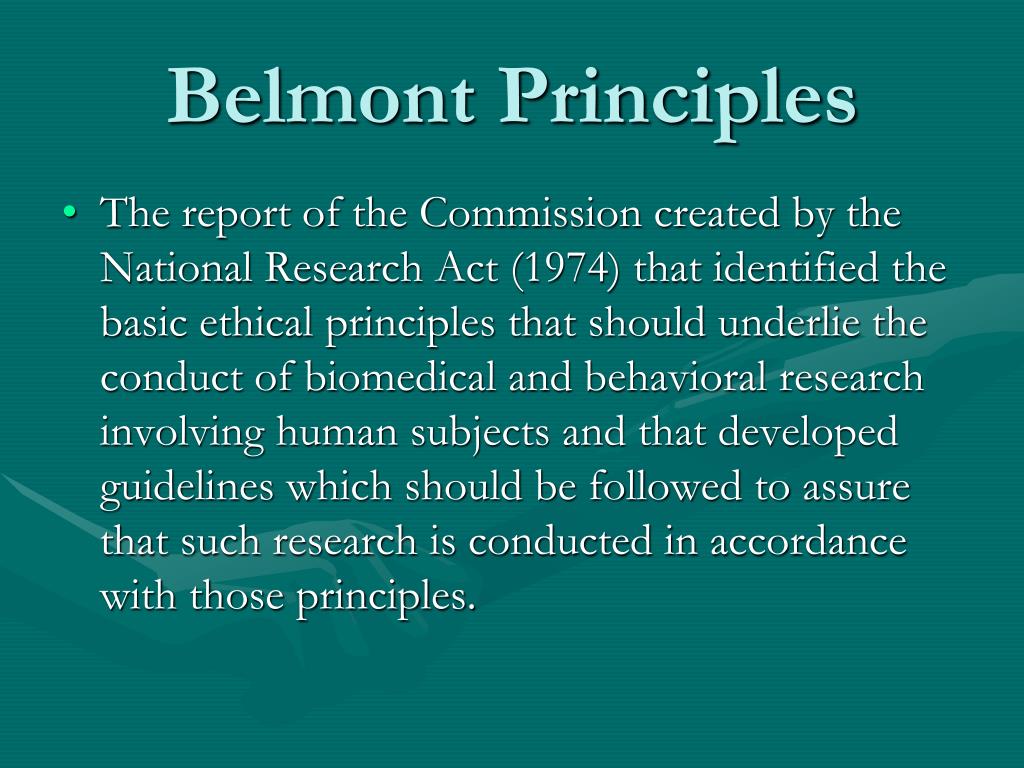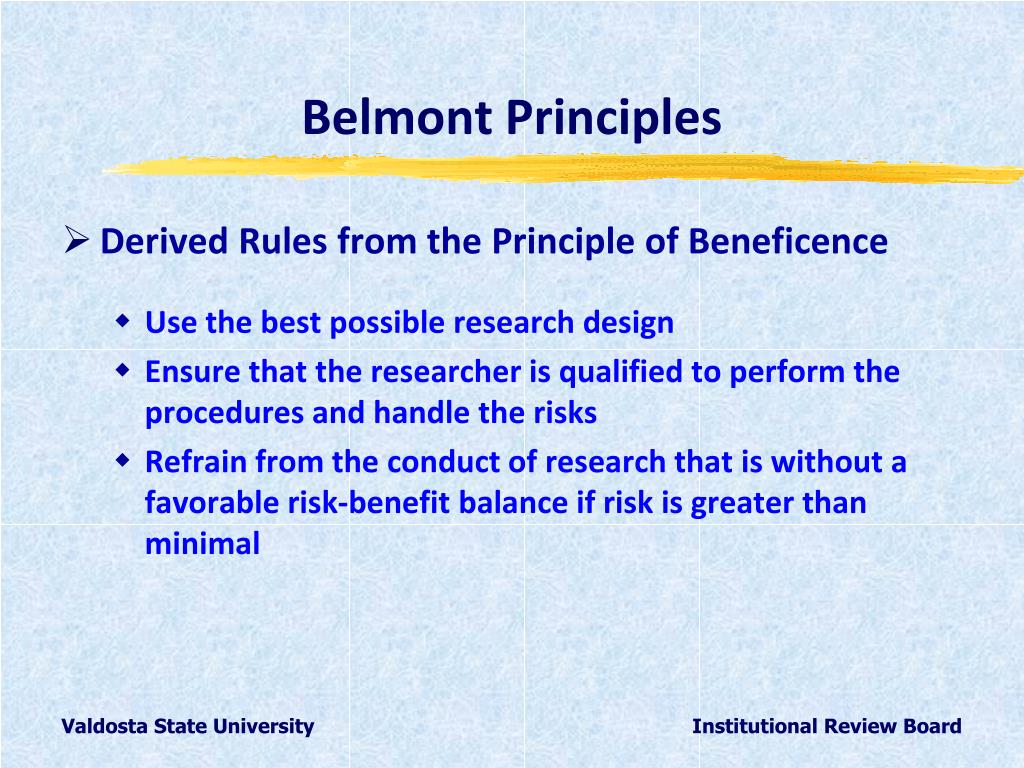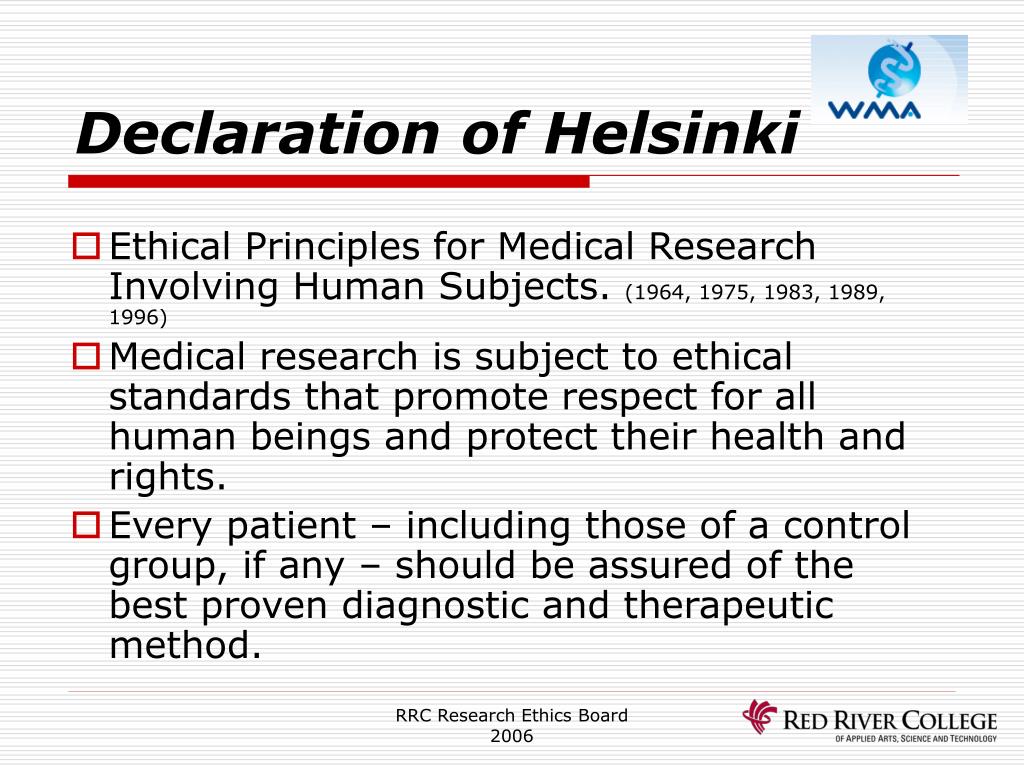

- #The belmont principle of beneficence requires that full#
- #The belmont principle of beneficence requires that professional#
#The belmont principle of beneficence requires that full#
Expedited review also is permitted when the chair or an experienced reviewer determines that changes planned in previously approved research, during the period for which approval was authorized, will be minor.įor other projects (including all of those involving more than minimum risk to subjects) federal regulations specify that the project will be reviewed by the full board. If the initial assessment is that the project involves only minimum risk to subjects, and only certain types of activities (listed in the Common Rule) will take place, for which expedited review is permissible, then the review of the project may be performed by the IRB chair, or one or more experienced reviewers designated by the chair, acting alone to exercise all the authorities of the IRB except for disapproval. If a project falls into one of a number of exemptible categories (listed in the Common Rule), an appropriate member of the IRB will determine that the project will be exempted from further IRB oversight during a defined period of time. Assessment is the responsibility of the appropriate IRB(s). The extent to which, and the manner in which, IRB oversight of a particular project is required by federal law depends on an assessment of risks to the immediate human subjects. The application of justice, the third principle, requires researchers to exhibit fairness in determining which individuals will be selected to take part in potentially beneficial research and which will take part in risky research. The risks and benefits affecting the immediate research subjects will normally carry special weight in the consideration of the IRB, although on some occasions interests other than those of the immediate subjects may be considered sufficient to justify the risks to which those subjects will be exposed. Applying beneficence requires that research will be justified on the basis of a favorable risk/benefit assessment, in which “risk” is considered as the possibility that harm may occur and “benefit” is used to refer to something of positive value related to health or welfare. Briefly: Applying respect for persons means that, to the degree they are capable, subjects will be given the opportunity to choose what will or will not happen to them, through the researcher’s use of adequate standards for obtaining informed consent. For example, some demonstration and service programs may include research activities.įederal regulations that govern the participation of human subjects in research draw on standards published in an earlier document entitled “Ethical Principles - Guidelines for the Protection of Human Subjects of Research.” Implications of three ethical principles are discussed in the Belmont Report. Data through intervention or interaction with the individual, orĪctivities that meet the definition of research constitute research for purposes of this policy whether or not they will be conducted or supported under a program which is considered research for other purposes.
#The belmont principle of beneficence requires that professional#
Human subject means a living individual about whom an investigator (whether professional or student) conducting research obtains Research means a systematic investigation, including research development, testing and evaluation, designed to develop or contribute to generalizable knowledge. The definitions of research and of human subject used at Bentley University are:


In other words, it may be necessary for Bentley’s policies and procedures to be amended in accordance to the government’s response to application the university may make for an assurance, through which the government would be bound to accept the results of the IRB’s review of a particular proposal for research. They have been formulated in response to consideration of 45 CFR 690, the federal requirements known as the “Common Rule” that may be examined in its entirety here.īecause the regulations of individual federal agencies may deviate from the Common Rule, the university’s policies and procedures will be amended accordingly whenever a federal agency (or, if more than one, all federal agencies) from which the university is seeking funds requires the change(s). The following policies and procedures are adopted by Bentley University for oversight of research by the university’s Institutional Review Board (IRB).

(July 2001 Revised September 2016) Overview Bentley University Institutional Review Board Policies and Procedures


 0 kommentar(er)
0 kommentar(er)
